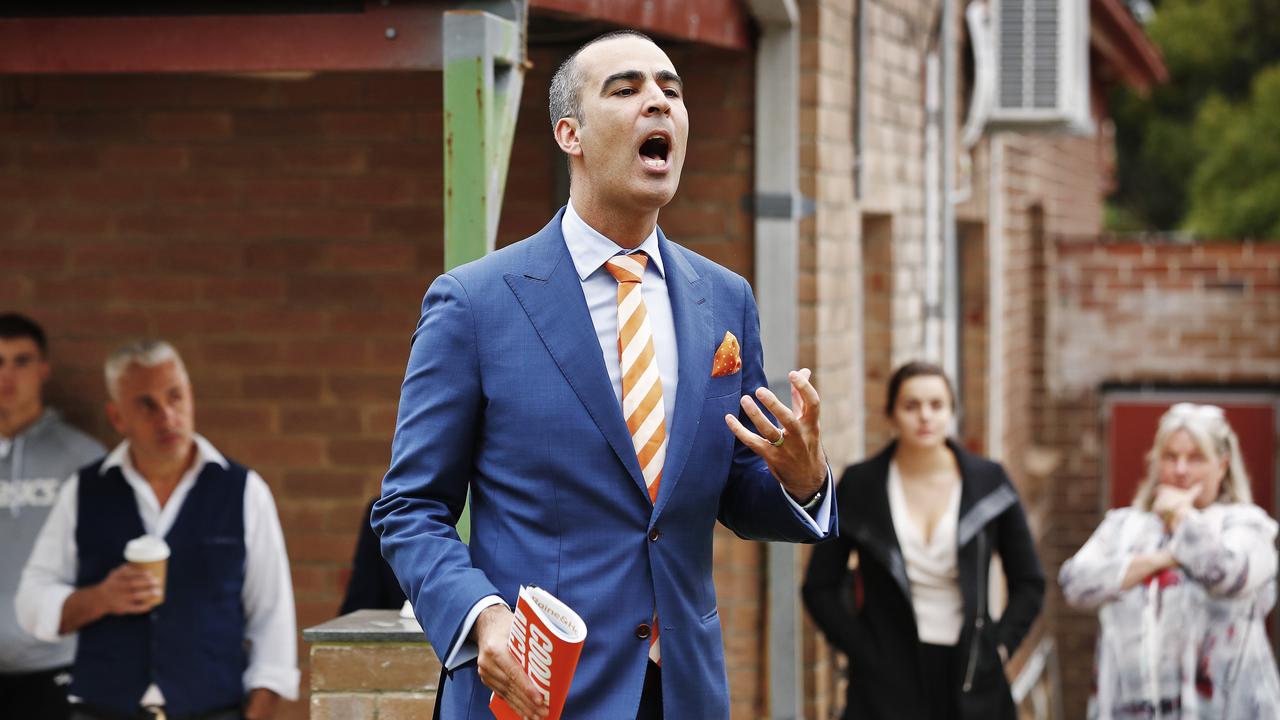Housing deposit myth and other money mistakes of millionaires
If you thought being a millionaire meant you made no money mistakes, then you’re very wrong. Here are some of the big ones.
The more money you have, the more costly your money mistakes become. Having seen inside how thousands of people manage their money, I’ve seen more millionaire money mistakes than most.
I’m unpacking some of the bigger and more common money mistakes of millionaires so you can learn the painful lessons from others, without having to make them for yourself.
Building a 20 per cent property deposit
A common mistake made by people looking to get into the property market is waiting longer than they need to, driven by the thought they should be trying to put down a 20 per cent deposit.
That’s because, 20 per cent is the threshold where you don’t have to pay Lenders Mortgage Insurance (LMI). And it’s worth looking out for because LMI can be expensive.
RELATED: The Aussie property boom is a lie

On a $1 million property if you put down a 5 per cent deposit of $50,000 the LMI cost would be $46,930 (4.69 per cent). If you put down a 15 per cent deposit of $150,000, your LMI cost would be $12,155 (1.22 per cent). And if you put down a 20 per cent deposit of $200k, there would be no LMI payable.
This shows a big difference in how much LMI you might pay. But saving a $200,000 deposit is a lot of work, and while you’re pushing to save, the rise in property prices can mean you end up chasing your tail.
As per the ASX long-term investing report, the long-term growth rate on properties is 6.8 per cent, meaning that on a $1 million property the growth in value each year will average out at $68,000.
This means every year your property is going to cost an extra $68,000, so paying LMI to get your property sooner means you end up ahead by a large margin in the long run. Smart investors know that sometimes LMI is just the cost of doing business.
Investing for tax purposes alone
In Australia we pay a lot of tax, ABS data shows the average income earner in 2020 paying $21,246 of income tax alone. Because most Aussies want to find ways to cut their tax bill, it’s easy to be blinded by the attractive potential tax savings.
In Australia we’ve seen a large number of investors be burnt and lose a ton of money by investing for tax reasons alone. In one of these tax driven investments alone that was incredibly popular in the lead up to the Global Financial Crisis (GFC) of 2008 and then promptly exploded, over 40,000 investors lost almost $2 billion.
Another common area many investors face this risk today is in buying property off the plan, looking for the tax perks that sit around their investment.
When you look at investment, make sure it stacks up as a good investment without the tax perks. You should look at the tax benefits as the cream on top. The tax rules can (and do) change frequently, and if you’re investing for just tax reasons kicker, if the rules change you can be left holding the bag.
Timing the market

RELATED: Investment that could make you rich
This mistake is one that impacts all investors, and the more you have in your portfolio, the more costly the mistake of trying to time the market can be.
Timing the market is where investors change their investments driven by what’s happening in markets and the economy. The problem with this approach is that statistics show that we’re really bad at actively investing or timing the market.
There is so much psychology that impacts how we invest, from herd mentality to behavioural biases and mental shortcuts (heuristics). Many of these thinking flaws can push us to make bad money choices.
Vanguard, the world’s second largest investment manager with over $US6.2 trillion ($A7.9 trillion) in funds under management, has done extensive research on how investors perform when they go it alone vs when they have a financial adviser in their corner.
They found when an investor has an adviser helping with their investment management, people are less likely to ‘time’ the market and more likely to stick to their set investment strategy.
S&P Global has found over 86 per cent of professional investors failed to outperform the sharemarket average over a 20 year period. This shows when investors try to time the market they often fail, sacrificing returns in the process.

Vanguard research found that sticking to your investment strategy and not timing the market has the potential to add 3 per cent to your investment returns every single year.
While 3 per cent might not seem like a huge number, for an investor starting their investment portfolio from $0 and investing $1000 per month, the compounding effect has a big impact over time.
For example, for an investor consistently achieving the average share market return of 8.7 per cent, investing $1000 would have a portfolio of $1,720,222 in 30 years. Achieving a 3 per cent lower return (5.7 per cent) means your portfolio in 30 years would be worth $948,763, reflecting a whopping difference of $771,459 or 81.3 per cent more.
To avoid timing risk, clearly set out your investment strategy first – and stick to it. Avoid the noise and hype that’s so common around investing and you’ll likely make better investment choices.
Not looking ahead
It’s common for people to think they should assess what makes a ‘good’ investment by the absolute return it will generate, but really that’s only half the picture.
Whether an investment is good for you or not depends on the return and how it fits in with the other things you want to happen with your lifestyle over time.
Starting a family, changing jobs or starting a business, temporary schooling and childcare costs are all things that can impact whether an investment will deliver the results you want.
To avoid this mistake, map out your position today and look ahead, layering on top your personal wants like family, schooling, new car, big holidays etc. This gives you your ‘lifestyle baseline’.

Once you have your baseline, you can add investment options on top. Buying an investment property, investing in shares, buying your dream home, and any other investment strategies you’re thinking about.
You can then see how these investments fit with your situation today and the lifestyle you want to live. The added benefit is you’ll see where you’re headed financially, a big driver of building your financial confidence and eliminating money-related stress.
Going it alone
There are so many things you need to get right to execute a solid money management, asset building, and wealth creation plan. Then there are all the things you need to know to build the confidence to take action and follow your plan through to results. It’s next to impossible to do this all on your own.
Apart from the fact we’re all getting busier and busier making it harder to find the time to dedicate to money, at the same time the amount of options are increasing rapidly.
This makes it challenging for even seasoned financial professionals to keep up, let alone the average Aussie.
A common barrier to people getting help is the cost, but know that when it’s done the right way, investing money into getting more out of your money will create more money than what you spend on getting help.
This is on top of the non-quantifiable benefits of having a rock solid financial strategy in place. Things like peace of mind, financial confidence, saving you time by doing the legwork, as well as pushing you forward to just get it done can all be a big benefit outside of just the dollars you’ll create from being smarter with your money.
The more you have going on with your money, the bigger the opportunity, so take the time to do some research and see how a professional can help you get to where you want to be faster and easier. Your future self will thank you for it.
The wrap
Unfortunately, there isn’t one set of rules every person can follow to lead to financial success. The best thing for you to do depends on you. It depends on where you’re at now, what’s important to you, and how you want your situation to play out over time.
That being said, there are some key mistakes people make that can hold you back. Take the time to learn from the mistakes others have made and you’ll avoid the pain and frustration, and get where you want to be sooner.
Written by Ben Nash, finance expert commentator, podcaster, financial adviser and founder of Pivot Wealth, Author of the Amazon Best Selling Book Get Unstuck: Your guide to creating a life not limited by money.
Disclaimer: The information contained in this article is general in nature and does not take into account your personal objectives, financial situation or needs. Therefore, you should consider whether the information is appropriate to your circumstances before acting on it, and where appropriate, seek professional advice from a finance professional.



